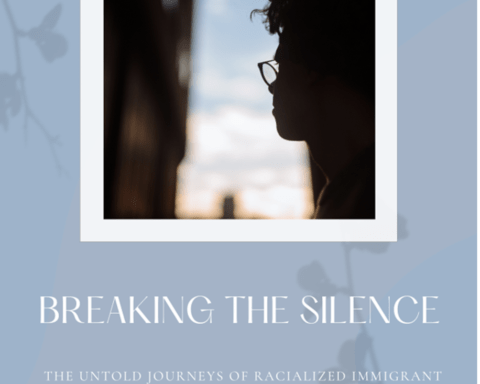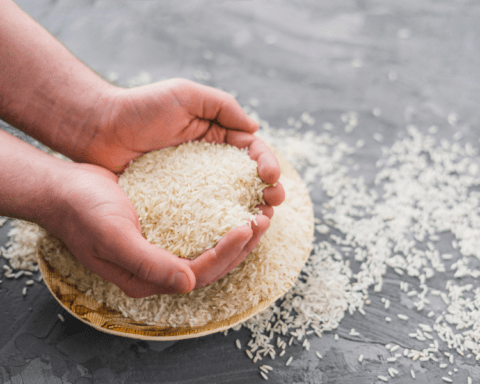“It was the best of times, it was the worst of times,” wrote Charles Dickens in the famous opening lines of his novel, A Tale of Two Cities.
A similar scenario was set up when two parliamentarians claimed that Canada is a leader in combating family violence in diverse communities, while two keynote speakers from the front lines of social work and advocacy argued that recent changes in immigration policy actually exacerbated the problem.
This exchange of views took place at the conference titled “Impact of family violence: Continuing the conversation with South Asian and diverse communities,” organized by the Social Services Network (SSN). A Toronto-based not-for profit charitable organization, SSN was established in response to the United Way of York Region’s finding that the South Asian community there was underserved by mainstream service providers.
[Minister Chris]Alexander listed a number of government accomplishments that he said would “make sure immigration is not a pathway to violence,” and put Canada in “a role of leadership.”
This conference was the fifth in a series of annual discussion forums hosted by SSN to connect the South Asian and other collectivist communities with all the key sectors involved in violence prevention and response.
The focus of the conference was finding solutions and strategies and supporting communities, whose voices are silenced through fear and shame, said Dr. Naila Butt, Executive Director of SSN.
The Government’s Role in Combatting Family Violence
Special guest speaker, Minster of Citizenship and Immigration, Chris Alexander, who tabled Bill S-7 or the Zero Tolerance for Barbaric Cultural Practices Act in Parliament to tackle forced marriages, underage marriages and polygamy, said: “These are issues around which there is a growing groundswell, especially among newcomers. They have chosen this country, and we have a responsibility to combat such things as forced marriage and domestic violence.”
Alexander listed a number of government accomplishments that he said would, “make sure immigration is not a pathway to violence,” and put Canada in “a role of leadership.”
“Family violence is not unique to South Asians; it is universal, and happens in developed, as well as developing, nations.” – Senator Salma Ataullahjan
Alexander said that one of these was former Foreign Affairs Minister John Baird’s initiative against forced marriage.
“On the immigration front we have been extremely active in the last nine years,” Alexander continued, citing such measures as conditional permanent residency and tools to detect and prevent marriages of convenience, forced marriage and human smuggling.
He also said that the government had put an end to proxy marriages and marriages by fax, which, perhaps surprisingly, used to be accepted as valid in Canada.
“But all this is still not enough,” he said, adding that Bill S-7 (which also amends the Immigration and Refugee Protection Act to exclude polygamists) has passed in the Senate and is soon to be passed in the House of Commons.
Senator Salma Ataullahjan, of Pakistani origin herself, said at the conference: “Family violence is not unique to South Asians; it is universal, and happens in developed, as well as developing, nations.”
Describing her work on this issue at the international level, as a member of the Inter Parliamentary Union, she echoed Alexander’s statement that Canada has been a world leader in the effort to eliminate family violence and violence against women and girls. She added that parliaments have a key role to play in this.
Problems with Recent Immigration Policy
Keynote speaker Dr. Hannana Siddiqui of the Southall Black Sisters – a not-for-profit organization set up in 1979 to meet the needs of Black (Asian and African-Caribbean) and minority ethnic women in the U.K. – was critical of the name of the Bill. She had been called upon to give evidence by video-link to the Canadian Senate as it deliberated on Bill S-7.
“Don’t use inflammatory language. For example, child abuse is barbaric, but it is not regarded as specific to one culture. Culturalizing forced marriage and similar practices will only lead to more discrimination against minorities.” – Dr. Hannana Siddiqui
“I have concerns about the name of that Bill,” she said. “We don’t have to call these practices ‘barbaric’ or ‘cultural’ because then one can blame ‘culture’ for these unacceptable actions.”
She suggested that the Bill be renamed. “Don’t use inflammatory language,” she advised. “For example, child abuse is barbaric, but it is not regarded as specific to one culture. Culturalizing forced marriage and similar practices will only lead to more discrimination against minorities.”
She also cautioned against culturalizing honour-based killing, the form that domestic violence takes in communities with extremely conservative values around honour and shame. “It’s about gender inequality and patriarchy, so don’t culturalize it,” she said.
Tracing the history of her organization and of the Black feminist movement in the U.K., she said the first step, as in Canada, was to get rid of the reluctance to ‘wash our dirty linen in public,’ and to acknowledge and name the problem of family violence.
She said that in the 1970s, the State adopted a laissez-faire approach and tolerated anything as long as it fell under the umbrella of “culture.”
“This was liberal multiculturalism,” she said. “Respect everyone’s culture, don’t criticize and don’t interfere.”
This did not help her cause at all she explained, because: “Multiculturalism is no excuse for moral blindness.”
With the criminalization of forced marriage in the U.K. last year, the pendulum has swung away from liberal multiculturalism, she said. However, the problem with laws like this, and Canada’s Bill S-7, is making them effective, she added.
“It might be just driving the issue of forced marriage underground, because the victims, mostly young women, would be fearful of putting their parents in jail.”
She said financial constraints are a further obstacle to enforcing such laws. With the climate of austerity, and the consequent cutbacks in government funding, it would be difficult for victims to meet legal and other expenses, she pointed out.
Dr. Rupaleem Bhuyan, assistant professor at the faculty of social work, University of Toronto and the event’s second keynote speaker, was critical of recent (2008 to 2014) immigration policy changes, which she said actually make life more difficult for women victims of family violence.
Identifying herself as the child of South Asian parents, Dr. Rupaleem Bhuyan, assistant professor at the faculty of social work, University of Toronto and the event’s second keynote speaker, was critical of recent (2008 to 2014) immigration policy changes, which she said actually make life more difficult for women victims of family violence.
Bhuyan has experience working as the principal investigator for the Migrant Mothers Project, a participatory action research project that works with a network of anti-violence against women organizations, legal advocates and immigrant women in Toronto.
Based on her research, Bhuyan said that the marked growth of temporary migration during this period, for example, through the Temporary Foreign Workers program, leaves many women in legal limbo, because as spouses of temporary workers, they have no rights whatsoever.
Ottawa-based writer/journalist, editor, blogger, communications professional seeking freelance opportunities in political and travel writing.





